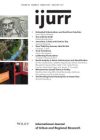This article focuses on the housing issues of rural migrants arising from urbanization, with particular reference to chengzhongcun, a topic with considerable impact on policymaking. An attempt is made to understand the underlying rationale of self‐help in housing and the important role of chengzhongcun in sheltering rural migrants in the context of China’s rural‐urban dichotomy. As demonstrated in this study, chengzhongcun accommodate, with little in the way of government resources and assistance, millions of rural migrants because of their social accessibility and affordability. While not denying their social problems, we argue that chengzhongcun in fact act as an innovative and positive agent to promote urbanization in present day China by housing massive numbers of rural migrants and assimilating them into cities. Current government policies towards chengzhongcun have generated a wide range of interest conflicts and confrontations. The consequences of such conflicts show that the government policies were problematic and unworkable, as they violated basic market principles as well as citizen rights. Policy strategy towards the redevelopment of chengzhongcun must acknowledge their credibility in the Chinese road to urbanization and requires more thoughtful and prudent consideration of migrants’ demands for affordable housing.
Details
Written by:
L. Zhang, Simon X. B. Zhao, J. P. Tian
Digital Object Identifier (DOI)
10.1111/j.0309-1317.2003.00491.x
About DOI
Read full article as PDF
Read full article as HTML
See the references for this article
